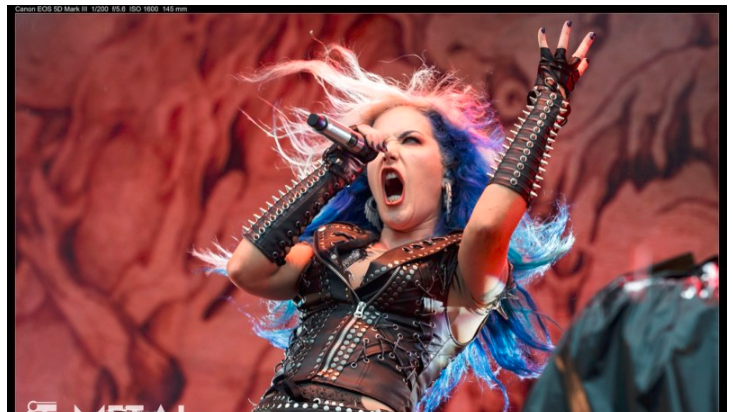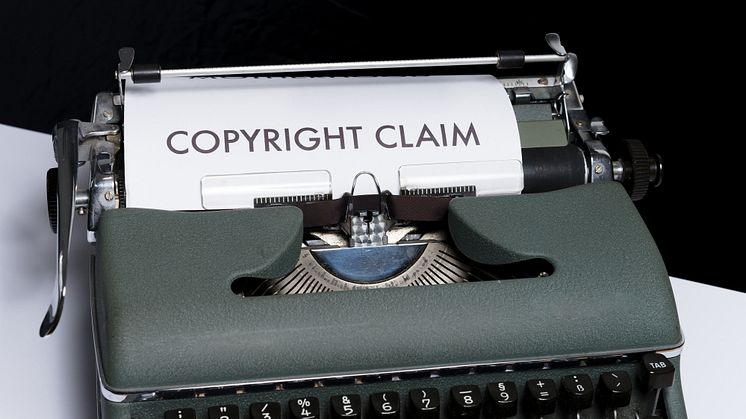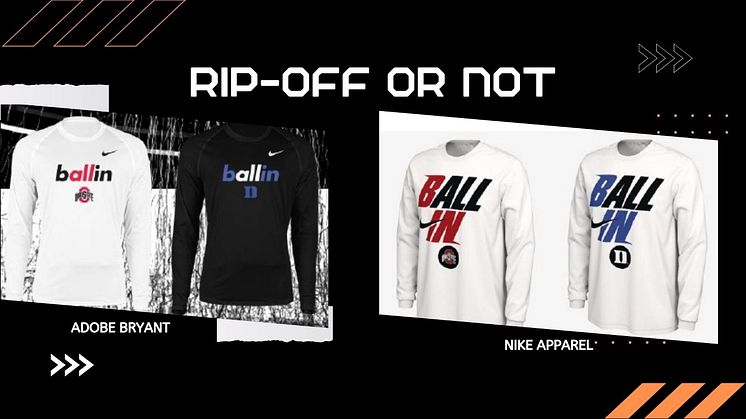
News -
Photographer becomes arch enemy for going after copyright offenders
A photographer has been banned by a metal band after he tried to get payment for a photo of the band that was used without his permission.
J Salmerón noticed that a photograph he took of Arch Enemy's frontwoman Alissa White-Gluz during a music festival in the Netherlands was being used by a clothing company called Thunderball Clothing. Writing on photography website Petapixel, Salmerón said it was clear his photo was being used to advertise for Thunderball Clothing without his permission.
"In other words, this wasn’t merely a fan using the photo because they liked Arch Enemy (which I would normally tolerate), but instead a business, profiting from my work without even asking for my permission," Salmerón wrote.
Salmerón went after Thunderball Clothing, asking them to pay for his image since he is the copyright owner. He said he usually charges a fee of at least €500 to businesses that have posted his work in an unauthorized manner, but he will allow Thunderball Clothing to keep the post for a donation of €100 to charity the Dutch Cancer Foundation.
But the owner of Thunderball Clothing did not get back to Salmerón and instead complained to the band Arch Enemy about Salmerón sending her a "threatening" letter demanding €500. The manager of the band in turn sent a reply to the photographer, saying: "Alissa’s sponsors and fan clubs are authorized to share photos of her. Thunderball Clothing is a sponsor of Alissa and Arch Enemy."
The manager said: "Generally speaking, photographers appreciate having their work shown as much as possible and we are thankful for the great photos concert photographers provide."
According to their statement, the band seemed to think that because their members were in Salmerón's photos, they were able to use it however they wanted.
Salmerón also revealed a system that some bands have with photographers, that the photographers are allowed to photograph the band, but are paid in “exposure,” by having the band use their work before a big audience. He named artists like Taylor Swift, Lady Gaga, and The Foo Fighters as previously forcing concert photographers to sign contracts to surrender their rights over the photos they take at their concerts.
The photographer later found out Arch Enemy had taken down his photo and he was banned by the band from taking photographs at their concerts.
Shortly after Thunderball Clothing closed down. Its owner Marta Gabriel apologized to Salmerón and said she could not deal with the online harassment and death threats.
This is not the first time Arch Enemy has banned a photographer. In 2010, the band manager's Angela Gossow banned Dutch photographer Anouk Timmerman because Timmerman asked Gossow to take down the photos that Gossow had posted without authorization on Gossow's personal website.
This issue could have been settled amicably and without a lot of vitriol if all the parties understood copyright law. Not all media outlets seem to understand that, as BoingBoing wrote: "This is an interesting situation in that the scofflaws obviously can't be reasoned with, but suing the fashion designer over €500 in damages (or the band over its childish blacklisting threat) seems a pointless waste of time and energy. Sometimes the best remedy is the burning eye of Streisand."
Creators spend time and energy on their work and they deserve to be compensated, and not be exploited by companies that tend to insist on "pro bono" work, or paying in terms of "exposure". Most of the time, online justice is nice but hard cash is the best payment.
Related links
- How I Got Banned from Photographing the Band Arch Enemy
- Angela Gossow Bans Photographer From Arch Enemy Gigs After Copyright Dispute
- Thunderball Clothing Shuttered Due to Outrage from Arch Enemy Photo Ban
- Anouk Timmerman's correspondence with Arch Enemy
- Metal band Arch Enemy bans concert photographer after he complains their fashion designer swiped a shot


